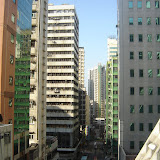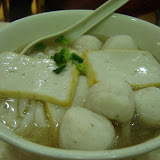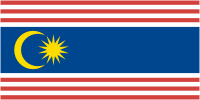EnDurians...
These photos pretty much depict the general sentiment/sensation of the group as they tried their first taste of durian in the streets of Chinatown in Kuala Lumpur.
Some call the fruit fragrant, some call it fetid, some call it putrid.
Immediately after her first taste of durian, Melissa smoked 2 ciggies just to get rid of the taste. Theresa is still recovering, I think. Gary has been silenced. Wordless. No vocabulary adequately describes the experience. Perhaps that is why his journal is missing -- it couldn't quite live up to the responsibility of writing about the durian experience. Allan didn't like it, but the durian was able to woo him back for a second tasting (along w/ Jeffrey, MaiAnh and HoangAnh sitting in the dining room of Dong Phuong Hotel, Saigon) in which he ate probably 1/4 of the delicious fruit.
The whole event was a blur, and most have blocked the experience out of their minds. (Side note: Melissa and Abby both purchased durian candy to bring back to their loved ones in the U.S. Oh, the troubles we endure for those we love!) For the record, Jeffrey, Mai-Anh and I LOVE, LOVE, LOVE durian. 
On our first night in Kuala Lumpur, Jeffrey, Mai-Anh and I went to Chinatown by ourselves looking for durian. We got off the train, walked to Chinatown (Jeffrey led the way since it's his neck of the woods), and headed straight for the fruit stalls selling durian. We were still about a block away when I caught a whiff of the wonderful smell of durian. Jeffrey led us directly to a stall, picked out a Malaysian durian the size of a small melon (only 8 ringits per kilo) and the stall owner split it open right there where we stood. The wife pulled out four plastic chairs, and we dropped down onto three, waiting for the "presentation." When they placed it in front of us, my mouth started watering, just thinking about the sweet taste of the flesh melting in my mouth. We dug into it with our fingers, each grabbing a section of yellow durian meat, and in two minutes it was gone. Never mind the fact that we were watched by practically everyone on that side of the street. Never mind the fact that even our clothes smelled like durian. It was delicious!
The next evening, we took everyone to Chinatown to try durian, and that's where all the photos came from. It wasn't until our arrival in Saigon that we were able to enjooy durian again. That time, Allan joined the three of us in the dining room of Dong Phuong Hotel. It was about midnight, and we finished only 2/3 of the durian. The rest we bequethed to the hotel bellmen who were guarding the hotel that night. (Allan said that when he returned to his room, before he could say a word, Gary could tell immediately that he had consumed durian.) You might think we're the only crazy folks who eat durian. But, it's the king of fruits, you know.
In Singapore, there is even a building called the Durian. 
Our last tasting of durian on this trip was the last night we were in Saigon. It was almost 12:30 a.m. on Sunday, and we had to check-out at 3:00 a.m. to go to the airport. But, we had to have one last night. I hopped on a motorcycle with a friend and she buzzed me through the busy night traffic and we found a stall that sold durian. 40,000 VND per kilo ($2.50 per kilo). The one we chose was almost 3 kilos, totaling 110,000 VND. They split the durian for us right on the spot and packaged it "to go". When I brought it back to the hotel, the entire lobby smelled of durian. It wasn't difficult to locate. We loved it so much. We were tired and sleepy but the durian was delicious. We didn't get to bed until early in the a.m., but it was absolutely worth it.
Now, after returning home, I can only find whole, frozen durians. Nothing compared to the real fruit -- fresh and fragrant. But, it'll have to do. It'll have to do. For now.















